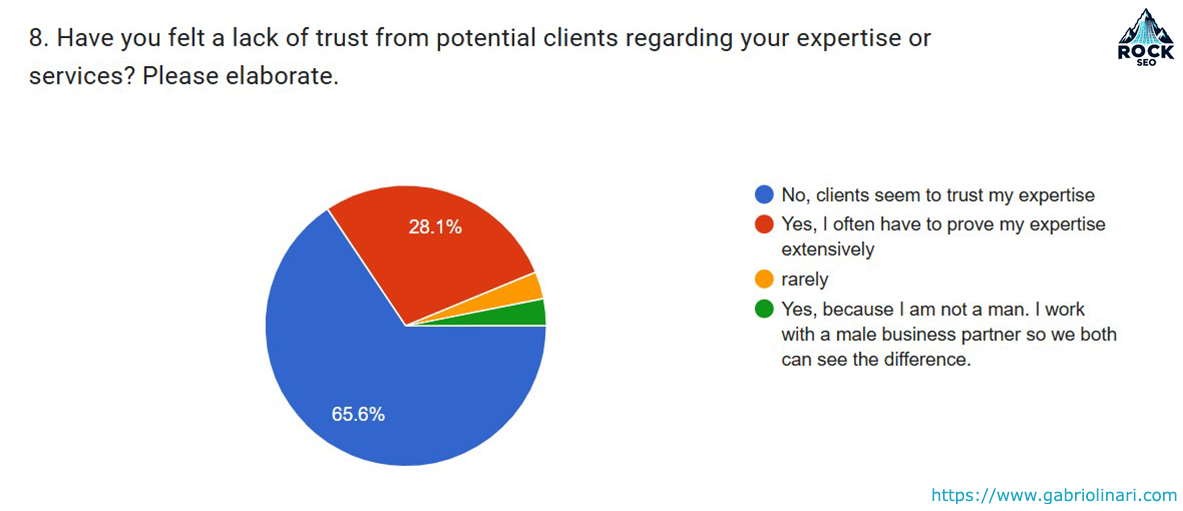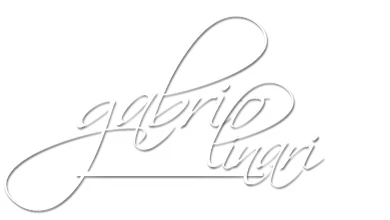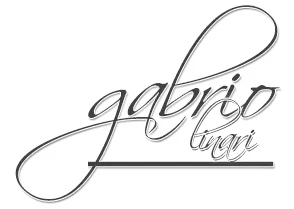State of Consultancy Summer 2024 Edition: The Elephant in The Room
By Gabrio Linari, Last Updated on 24 February 2025

Case Study
In collaboration with: Jay Thandi from Solis Recruitment
Over the past few months, I’ve had several private discussions with site owners, fellow consultants, and specialists. A recurring theme has emerged: many are facing significant challenges in finding new job opportunities and clients. The market is down, the economy remains unstable, and uncertainty prevails.
This case study was developed to explore these challenges, gather insights from professionals, and provide solutions. Below are the findings collected over the summer, organized to help navigate these turbulent times. Below each question, i’ve added my suggestions on solutions.
Goals of This Case Study:
- Provide a platform for consultants and professionals to express their concerns.
- Highlight common frustrations and themes they’ve encountered with clients and companies.
- Offer solutions to help overcome these challenges and adjust to the evolving market.
Key Challenges in Consultancy Work in 2024
Finding clients has always been one of the most challenging aspects of freelance consulting. Leveraging existing connections when transitioning from full time employment to freelance work is a luxury that not everyone can afford. Those who have done so often see success, but what about everyone else?
There’s an old saying, “when everybody goes north, go south,” which applies here: if everyone is offering the same type of services, how can you differentiate yourself? This is a vital question for consultants to consider. Let’s dive into the data.
- 59.4% of respondents struggle with finding clients who understand the value of their work.
- 21.9% cited an oversaturated market as their primary challenge.
- 18.8% mentioned a lack of demand for consultancy services.

This data paints a clear picture of the challenges consultants face: issues surrounding the perception of value and high competition in a crowded market. Many consultants are finding success when they carve out a niche and focus on offering unique, tailored services that stand out in an oversaturated market. Encouraging consultants to assess market gaps or specialize in areas with less competition could be beneficial.
Solution 1: Consultants need to focus on explaining their unique value clearly. Sharing case studies or success stories early on can help show the real benefits of working with them. However, it’s important to be cautious, as some companies might just be after free advice or work without commitment. On top of that, educating clients about what AI can and can’t do is key. Many clients may assume AI can replace expert knowledge, but showing them the limits of AI compared to human expertise can really set you apart.
Solution 2: Specialization is key for standing out. Consultants should look at where there are gaps in the market and find niche areas where there’s less competition. Offering tailored, bespoke services based on specific industry experience can really set you apart. For example, highlight work you did with a client in a similar niche a couple of years ago to show your expertise. It’s also worth targeting industries or emerging market needs where fewer consultants are currently operating to give you an edge.
Solution 3: Consultants need to stay agile and be ready to shift focus toward industries that are still growing, even during market downturns. Sectors like tech, sustainability, healthcare, and various “x-tech” industries (fintech, edtech, proptech, etc.) are strong contenders for growth. Additionally, emerging markets, especially in regions like Asia, offer huge potential as businesses continue to expand rapidly. Identifying these opportunities and tailoring your services to fit their unique needs can significantly increase demand. Staying on top of global trends and aligning your offerings accordingly is key.
Time Spent Looking for New Clients
The next key question was: How long have you been trying to find new clients?
Interestingly, responses are fairly distributed among those who have been searching for new clients for varying lengths of time. Responses indicate consultants are in various stages of the client acquisition cycle, but there’s no real downtime in seeking out opportunities.

Solution: Automating parts of the client acquisition process, such as using a simplified CRM to manage outreach or investing in new acquisition strategies (test and try different channels!) can alleviate some of this constant hustle. Building long term client relationships and focusing on retention should also become part of the strategy. Super super important.
Frustrations and Market Hesitations
When looking at frustrations, the biggest issue cited by 40.6% of respondents was the lack of responses from potential clients.
This is a key trend in 2024. Ghosting 👻 by clients is at an all time high. While consultants are frustrated, clients are often overwhelmed by a flood of proposals and contacts, making it difficult to respond to everyone. I’ve heard of openings that receive over 500 responses, which is tough for anyone to manage, even with AI.
- 40.6% pointed to lack of responses from potential clients.
- 15.6% mentioned clients’ unrealistic expectations.

These frustrations indicate that many consultants feel clients are unresponsive, uneducated about what consultancy services offer, and hesitant to commit.

In addition to ghosting and unrealistic expectations, there are some location specific limitations that restrict their opportunities. According to the data:

Solution 1: To reduce ghosting, consultants should aim to build relationships over time rather than pushing for immediate commitments. A balanced approach is key. This can involve more personal connections with prospects, LinkedIn connections, or offering smaller, no risk consultations and put up some time upfront (within limits). Consultants might also consider creating follow up frameworks that keep potential clients engaged to offer better value for their services.
Solution 2: Setting clear expectations from the start is essential. Consultants need to be transparent about timelines, costs, and deliverables, using milestones to track progress. Regular check ins and structured reports help manage expectations and avoid misunderstandings. It’s also important to think cross culturally, not every client prefers the same follow up style. Understanding their communication preferences is key. One great resource on this is “The Culture Map” by Erin Meyers.
Client Feedback
Despite the frustrations mentioned, 53.1% of respondents reported receiving positive feedback from clients. This indicates that many consultants are valued, even though it might not always translate into immediate work.

It’s very important to maintain these relationships and continue building trust, as referrals remain one of the strongest drivers for securing consultancy work.
Solution: Maintaining healthy relationships with clients even after the project ends is key to securing ongoing feedback. Encourage clients to share testimonials and actively ask for feedback during the consultancy process to create a stronger business relationship.
Economic Uncertainty and the Role/Challenge of AI
We also explored whether broader macro trends are affecting the state of consultancy.
- 65.6% of respondents feel trusted by their clients.
- 28.1% frequently have to prove their expertise.
One respondent highlighted the gender bias they face in consultancy, mentioning that they often have to prove their expertise more extensively than male counterparts. Given the significant increase in female-led positions and the growing presence of women in the workplace today, it’s surprising to still hear about such biases. This suggests that, while progress has been made, certain biases continue to persist in some regions and industries.

Meanwhile, AI continues to emerge as both a challenge and an opportunity. Several consultants expressed concerns that clients are increasingly opting for AI solutions over human expertise, which they find troubling. (and let me add that clients don’t know what they’re doing!)

More Interesting Insights
Respondents highlighted issues such as economic uncertainty, political unrest, and Ai driven competition, all of which complicate the current state of consultancy.
Key Responses from Consultants
War and Elections:
“Yes, especially the war in Europe and the uncertainty in the US with upcoming elections. Consumers are tight with their spending.”
Rapid, Frequent Trends:
“It’s hard to keep up with trends nowadays; they change so quickly that it’s difficult to draw a clear picture.”
Market Saturation and AI:
“Saturation, AI, and people offering services at a fraction of the price are all affecting the state of consultancy.”
Economic Instability:
“The economic uncertainty is impacting everything. It’s harder to secure consistent work with the market like this.”
AI’s Dual Impact:
“AI is both a challenge and an opportunity. While some clients rely too much on AI, more are realizing its limitations and returning to consultants.”
Agency Preference:
“Clients are more willing to pay agencies than independent consultants, even though the actual work is often done by less experienced juniors.”
Sector Specific Slowdowns:
“The sector I’m in is down. Economic uncertainty, interest rates, and layoffs over the past year are all contributing to the problem.”
Media Focus on TikTok:
“2024 US elections, ongoing wars, and a huge focus on TikTok versus other channels are shifting where budgets are allocated.”
Post COVID Market:
“The COVID boom feels like a distant memory. The narrative of economic uncertainty keeps clients cautious.”
Many respondents feel that clients misunderstand or undervalue their work. Educating clients about the limitations of AI and the importance of human insight can help shift perceptions.
Several consultants suggested that stronger referral networks or participation in niche communities would help them secure more work. 53.1% of consultants are still receiving positive feedback from their proposals, highlighting the importance of maintaining strong client relationships
Respondents mentioned that economic downturns, ongoing wars, and elections are creating uncertainty, tightening clients’ budgets. However, consultants can differentiate by offering value focused solutions and helping clients navigate these macroeconomic trends.
Do You Believe Your Services Align with Current Market Demands?
“They definitely align, but there seems to be so little commitment from people.”
“Clients either want a magic button to fix everything or they want the latest AI trend that everyone’s talking about.”
“Clients are overwhelmed. They find it hard to cut through the noise to reach their customers, that’s where marketing comes in.”
“With AI entering the picture, many clients are unsure why they should pay for human expertise when AI promises faster and cheaper results.”
“I align my strategy with user intent, which is crucial in the current market. Clients need help with the bigger picture.”
“As costs rise, businesses are realizing SEO is key since paid ads are getting more expensive, but many clients still don’t understand digital marketing.”
“My services align, but I work in a very specific niche that not every business needs.”
“Many clients spend too much on paid traffic, while organic growth often proves better and more affordable, but they don’t realize this until too late.”
“Clients usually confirm my services are exactly what they’re looking for, but it takes time to convince them to invest.”
“I believe AI has changed the game, and many clients are confused about what’s worth investing in. This is the biggest challenge.”
Suggested Solutions from Consultants
When asked “What resources or support would help you the most in finding consultancy work?”, respondents shared the following ideas:
“I think a TripAdvisor for Freelancers is needed, a sort of database with mandatory quality feedback from previous customers could help market evaluation of individual work, promoting quality over quantity. Like a word of mouth of the digital era.”
“LinkedIn, The Digital Marketing Union, my website.”
“Google needs a radical change emphasizing the simplicity and global needs of search.”
“Legal support, like help drafting contracts and securing insurance, would make my work easier.”
“For now, I think that understanding the business related fundamentals like how to talk to a potential client, how to get them to trust you and more would be helpful. Also, some sort of place that lists all the companies by different industries would be nice.”
“I think I should learn more about CRMs and focus on building my personal brand.”
“Being in the right sub communities is important, but I’ve noticed nepotism increasing in some places.”
“My source of business is referrals. I tried content, ads and the best results are referrals.”
“Too many snake oil sellers in the market creates a lack of trust when results don’t happen. A way of clients being able to find trusted / verified SEOs and Consultants whom have had their work checked / assessed by SEOs could be ideal.”
“AI, books, case studies and research papers to inform my thinking and problem solving process.”
“So far, I have always found clients through direct connections in the industry and never through specific platforms, ads, and so on. Maybe in the future, we could have a sort of LinkedIn specifically for consultants and contractors.”
“A referral network would really help.”
“I think an aligned community where consultants can pass work to each other would really help.”
“Honestly, I just need more time to focus on the work that matters.”
“Some dedicated sales training and better forecasting would definitely help me improve.”
“I think sharpening my commercial skills would make a difference.”
“High quality lead generation would be a game changer for me.”
“Having a strong network of people adjacent to my work who can recommend me would be great.”
“Mentoring and a support network would really motivate me to keep chasing leads.”
“It’s important to explain to clients what AI can and can’t do, and that they can’t just replace people with machines.”
“Having access to consumer data platforms like Mintel would be really useful.”
“Training on business development would really improve how I approach my work.”
“I’m not sure, like many of the questions above, this is often not either/or, but a mix of things (e.g., AI + decreasing value/understanding + x). When it comes to resources, it might be the same. It’s always either cheaper (what younger freelancers might provide), faster (where AI comes in as a good helper, as it already does here and there), or better (e.g., having a larger team to pitch for work, making it more of a company with a dedicated new business approach, filling the pipeline).”
Final Thoughts
The consultancy market is evolving rapidly. AI is becoming more prominent, and clients are more cautious about how they allocate their budgets. Nevertheless, there remains optimism within the consultancy world.
- 25% of respondents are very optimistic about securing new clients in the next six months.
- 59.4% feel somewhere in the middle.
- 9.4% are not optimistic at all.

Despite the challenges, this data shows that the majority of consultants are cautiously optimistic or undecided, indicating that while securing new work may be tough, opportunities still exist for those who remain adaptable and proactive.
Thanks to all consultants that participated!
About The Author
I have over 15 years of professional experience spanning SEO, strategic digital transformations, and business growth initiatives. My expertise lies in aligning SEO efforts with business goals to drive meaningful results. I regularly post on LinkedIn about Growth Marketing, remote work, and inspirational topics. Check out my latest posts on Gabrio’s Thoughts, which is regularly updated. You can discover more about me here and subscribe to ROCK SEO YouTube Channel.


